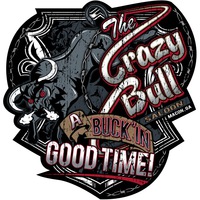
Как появился праздник новый год?
 0
0
 0
0
Ответы на вопрос
 Внимание! Ответы на вопросы дают живые люди. Они могут содержать ошибочную информацию, заблуждения, а также ответы могут быть сгенерированы нейросетями. Будьте внимательны. Если вы уверены, что ответ неверный, нажмите кнопку "Пожаловаться" под ответом.
Внимание! Ответы на вопросы дают живые люди. Они могут содержать ошибочную информацию, заблуждения, а также ответы могут быть сгенерированы нейросетями. Будьте внимательны. Если вы уверены, что ответ неверный, нажмите кнопку "Пожаловаться" под ответом.

Ответ:
Впервые обычай праздновать Новый год появился в Древней Месопотамии. ... Праздновали Новый год маскарадами, карнавалами и шествиями в течение 12 дней, начиная с конца марта, после того как прибывала вода в Тигре и Евфрате и начинались земледельческие работы. Люди веселились и гуляли, так как работать в эти дни запрещалось.
Объяснение:
Ну я тебе так объяснил, если что виняй на себя
 0
0
 0
0

Ответ:
Первые документальные свидетельства о праздновании Нового года восходят к третьему тысячелетию до нашей эры, но историки полагают, что праздник еще древнее.
Получается, что Новый год — самый древний праздник, который отмечали и продолжают отмечать разных странах в разное время.
Впервые обычай праздновать Новый год появился в Древней Месопотамии. Новый год в Вавилоне отмечали в день весеннего равноденствия – в это время природа просыпалась от зимнего сна. Праздник был установлен в честь покровителя города — верховного бога Мардука.
Праздновали Новый год маскарадами, карнавалами и шествиями в течение 12 дней, начиная с конца марта, после того как прибывала вода в Тигре и Евфрате и начинались земледельческие работы. Люди веселились и гуляли, так как работать в эти дни запрещалось.
Читать далее: https://sputnik-georgia.ru/reviews/20180101/238754824/Pochemu-Novyj-god-prazdnujut-1-janvarja-Istorija-prazdnika.html
Объяснение:
 0
0
 0
0

The Origins of New Year's Day
The celebration of New Year's Day has ancient roots and has evolved over time. The exact origins of the holiday are complex and varied, with different cultures and civilizations contributing to its development.
Ancient Mesopotamia and Babylon: One of the earliest recorded celebrations of the new year can be traced back to ancient Mesopotamia, specifically the Babylonian civilization. The Babylonians celebrated the new year during the spring equinox, which usually fell in late March. The festival, known as Akitu, lasted for 11 days and involved various religious rituals and festivities.
Ancient Rome: The Roman calendar originally had March as the first month of the year. However, in 153 BCE, the Roman Senate declared January 1st as the official start of the new year. This change was made to align the calendar with the solar year and to honor the Roman god Janus, the deity of beginnings and transitions. Janus was depicted with two faces, one looking back at the past year and the other looking forward to the new year.
Medieval Europe: During the Middle Ages, the celebration of New Year's Day varied across different regions of Europe. In some areas, the new year was celebrated on December 25th, which coincided with the birth of Jesus Christ. In other regions, the new year was observed on March 25th, which marked the Feast of the Annunciation. The adoption of January 1st as the official start of the new year gradually spread throughout Europe during the Renaissance period.
Gregorian Calendar: The modern celebration of New Year's Day on January 1st is largely attributed to the introduction of the Gregorian calendar. In 1582, Pope Gregory XIII implemented the Gregorian calendar to replace the Julian calendar, which had a slight discrepancy in calculating leap years. The Gregorian calendar was widely adopted by Catholic countries, and January 1st became the universally recognized start of the new year.
Cultural Traditions: New Year's Day is celebrated in various ways around the world, with different cultures and countries having their unique customs and traditions. These may include fireworks displays, family gatherings, special meals, exchanging gifts, making resolutions, and participating in religious or spiritual ceremonies. The specific traditions associated with New Year's Day can vary greatly depending on the cultural context.
Conclusion
The celebration of New Year's Day has a rich history that spans different civilizations and time periods. From ancient Mesopotamia to modern-day festivities, the holiday has evolved and adapted to reflect the beliefs and customs of various cultures. Today, New Year's Day is a time for reflection, renewal, and celebration as people around the world welcome the beginning of a new year.
 0
0
 0
0
Похожие вопросы
Топ вопросов за вчера в категории Русский язык
Последние заданные вопросы в категории Русский язык






-
Математика
-
Литература
-
Алгебра
-
Русский язык
-
Геометрия
-
Английский язык
-
Химия
-
Физика
-
Биология
-
Другие предметы
-
История
-
Обществознание
-
Окружающий мир
-
География
-
Українська мова
-
Информатика
-
Українська література
-
Қазақ тiлi
-
Экономика
-
Музыка
-
Право
-
Беларуская мова
-
Французский язык
-
Немецкий язык
-
МХК
-
ОБЖ
-
Психология
-
Физкультура и спорт
-
Астрономия
-
Кыргыз тили
-
Оʻzbek tili




















